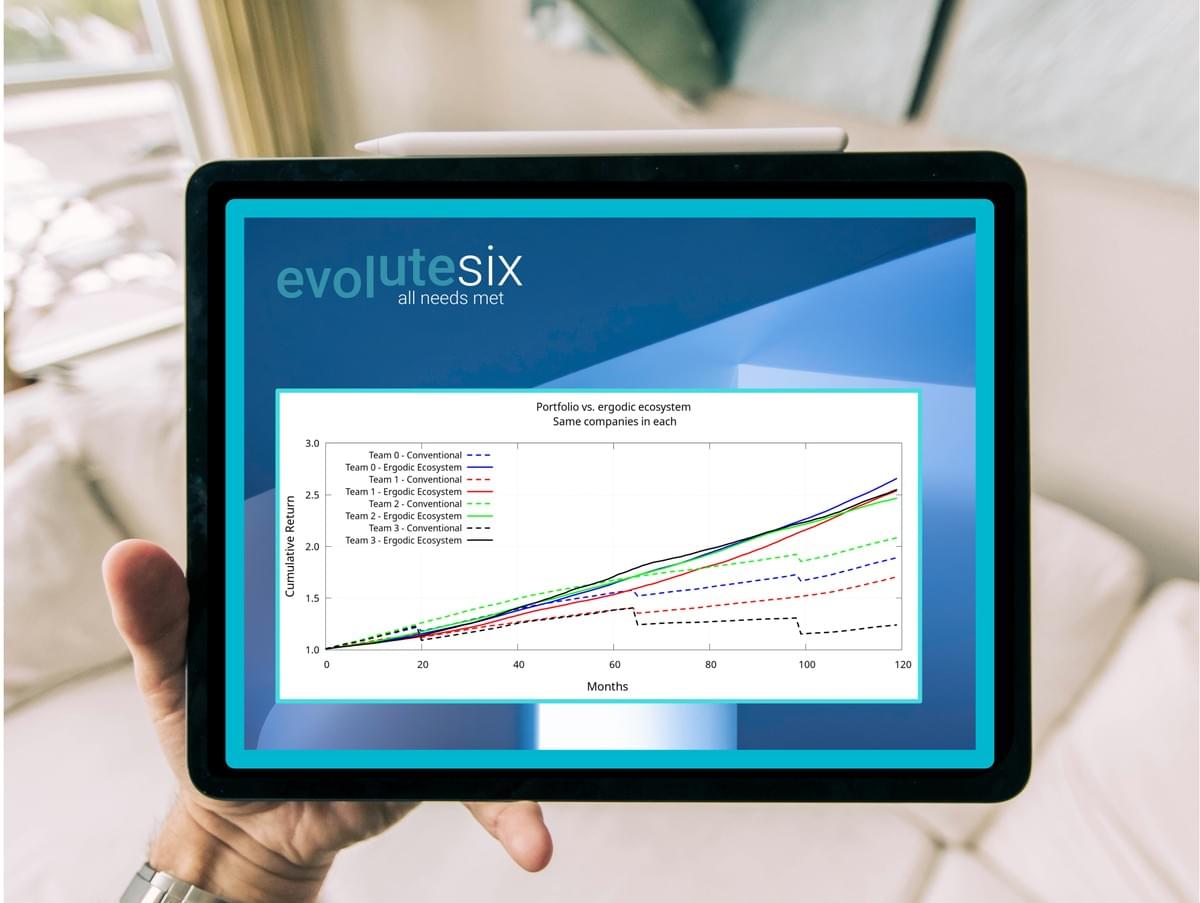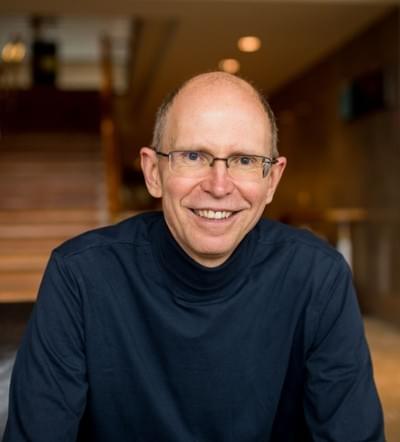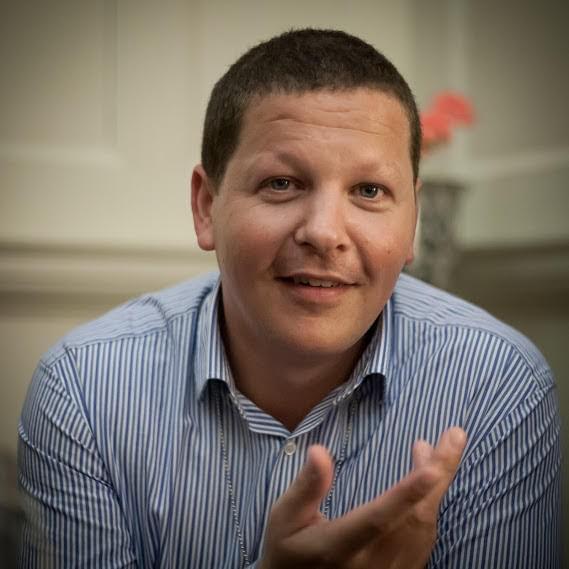
- …
- …
The Transformational Investor
For investors of the future, especially LPs aiming at more than capital preservation and growth, wanting to leave a legacy beyond the 10 years of a fund, acknowledging that we need systems change
Join this 12 month MBA level course on how to use complexity and ergodic investing, which is beginning to replace conventional portfolio investing because it performs better across the triad impact, capital preservation, and growth in VUCA times by integrating impact, complexity, and ergodic investing.
Are you disillusioned about the VC current model, about chasing unicorns, needlessly high startup failures? There is a better way, grounded in absolutely solid mathematics. More solid than portfolio theory ...
Click play to compare
the performance over ten years of 4 different conventional portfolios (dashed lines) vs. the same companies invested in according to ergodic investing (solid line). This is from our planning software, not historical data. Watch minutes 10:28 to 14 of the discussion between Graham and Robert Rubinstein of TBLI for the comparison.
It's time for all FO, VCs, LPs, and their professional managers to use the recently named and statistically understood, but historically dominant, ergodic investment strategy. Otherwise we're going to continue to waste money and lose valuable time in trying to close the triad of impact, preservation, and growth of capital. The Universa hedge fund (Spitznagel and Taleb), the Mondragon group, Japanese Keiretsu and Korean Chaebol, and all long-lasting old cultures used this strategy; ergodic investing is the future.

You will get
- The solutions to a little-known root cause of capital losses: non-ergodic capital growth processes, and almost everything is non-ergodic: Ergodic ecosystem investing.
- Harnessing complexity and uncertainty for benefit, rather than futile attempts to control it away.; and the difference between uncertainty and risk.
- A better way, e.g. for FO, of aligning the interests of principals and the KPIs of the wealth allocators.
- See more clearly, in the face of ever more uncertainty, your options for success by strengthening your transformational capacity.
Further details in the course outline and in the Who is this for FAQ below.
Ergodic thinking shines a light on the path to a prosperous future by aligning our finance with the complexity of how all living systems actually work: in dynamic balance, collaboratively.
John Fullerton, Capital Institute
A breakthrough strategy of investing based on a key element of anti-fragility. The take-aways are significant and possibly solve the scaling issue that perplexes the regenerative community. The method takes cues from nature and is proven with mathematics.
Lyn McDonell President, The Accountability Group, Inc.
Stop suffering inefficient and hidden capital losses.
Antonio Potenza; FRSA, MBA Oxford, CISL Cambridge, Founder of Proodos Capital and Fund4Impact, Serial Entrepreneur
Get a head start becoming a transformational investment leader


Transformational Investor Course
6.500,00 € - 8.500,00 €
A maximum of 7 participants in a 12 month training, 2 hours per month online coursework plus 2-4 hours per month reading and writing. In addition you will be members of Evolutesix's ecosystem with access to monthly discussions and guest speakers.
Also available as a bespoke programme for your firm, contact us to discuss.View more details...SelectQuantityComing soonWho this is for, what do you get, FAQs
Who else is already using ergodic strategies?
Why is it so little known and used by investors?
Flip the 95% of VC funds underperforming for LPs
Align FO principals and their professional asset managers
Does this help me use the strength of VC meaningfully, e.g. climate change?
Does this resolve the 'either profit or impact' tradeoff?
Is this relevant for regenerative investing?
The future will not be more of the past.
How this enables you to deliver bigger impact and systemic impact.
How does this address equity and the historically overlooked / excluded?
Wishing you could invest in game-changing ideas?
Looking for a way of eliminating the waste in investing?
Is this relevant to pension fund managers?
What is the difference between uncertainty and risk?
What does this have to do with Russian Roulette?
Meet the trainers

Graham Boyd (Founder Evolutesix)
Graham is the founder of Evolutesix, a venture studio and investor specialised in building ecosystems of future-fit businesses according to Evolutesix's ergodic investment strategy.
Author of The Ergodic Investor and Entrepreneur and Rebuild: the Economy, Leadership, and You, leading guide books for investors and entrepreneurs to create successful businesses for the future.
With a PhD in physics, he is at his best creating new opportunities for success in volatile, uncertain times. His speciality, according to his colleagues, has always been breakthrough innovation because he sees far round corners others cannot yet see.

Greg Fisher
Greg has a strong background in economics and asset management, which he recently supplemented by finishing a PhD in the advanced field of Complexity Science. His aim now is to leverage this understanding, and his skills in computational modelling, to help improve practice in banking and asset management.
Greg is an asset management and complexity science expert with a distinguished background, including a PhD in complexity economics, CFA, staff at the Bank of England, Chief Strategist at a macro hedge fund, and Cambridge University graduate.
His speciality, complexity science, is a new way of thinking that is relevant to investment management and banking.
© 2023



